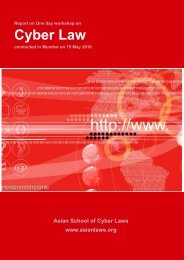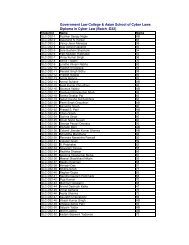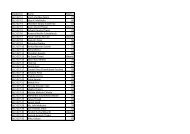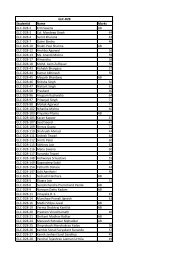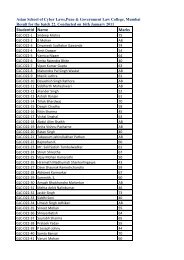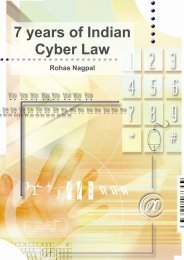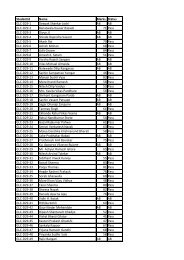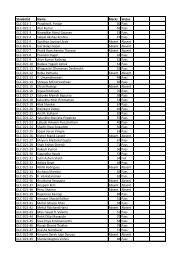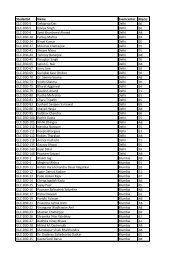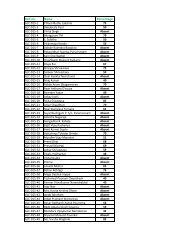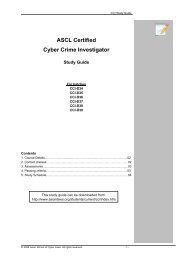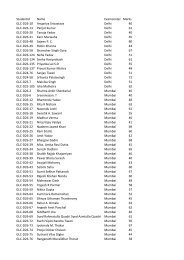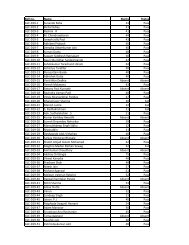Rohas Nagpal Asian School of Cyber Laws - Department of ...
Rohas Nagpal Asian School of Cyber Laws - Department of ...
Rohas Nagpal Asian School of Cyber Laws - Department of ...
Create successful ePaper yourself
Turn your PDF publications into a flip-book with our unique Google optimized e-Paper software.
<strong>Asian</strong> <strong>School</strong> <strong>of</strong> <strong>Cyber</strong> <strong>Laws</strong><br />
1.10 Web defacement<br />
Website defacement is usually the substitution <strong>of</strong> the original home page<br />
<strong>of</strong> a website with another page (usually pornographic or defamatory in<br />
nature) by a hacker.<br />
Religious and government sites are regularly targeted by hackers in<br />
order to display political or religious beliefs. Disturbing images and<br />
<strong>of</strong>fensive phrases might be displayed in the process, as well as a<br />
signature <strong>of</strong> sorts, to show who was responsible for the defacement.<br />
Websites are not only defaced for political reasons, many defacers do it<br />
just for the thrill. For example, there are online contests in which hackers<br />
are awarded points for defacing the largest number <strong>of</strong> web sites in a<br />
specified amount <strong>of</strong> time. Corporations are also targeted more <strong>of</strong>ten than<br />
other sites on the Internet and they <strong>of</strong>ten seek to take measures to<br />
protect themselves from defacement or hacking in general.<br />
Web sites represent the image <strong>of</strong> a company or organisation and these<br />
are therefore especially vulnerable to defacement. Visitors may lose faith<br />
in sites that cannot promise security and will become wary <strong>of</strong> performing<br />
online transactions. After defacement, sites have to be shut down for<br />
repairs, sometimes for an extended period <strong>of</strong> time, causing expenses<br />
and loss <strong>of</strong> pr<strong>of</strong>it.<br />
Illustration 1<br />
Mahesh Mhatre and Anand Khare<br />
(alias Dr Neukar) were arrested in<br />
2002 for allegedly defacing the<br />
website <strong>of</strong> the Mumbai <strong>Cyber</strong> Crime<br />
Cell.<br />
They had allegedly used password<br />
cracking s<strong>of</strong>tware to crack the FTP<br />
password for the police website.<br />
They then replaced the homepage<br />
<strong>of</strong> the website with pornographic<br />
content. The duo was also charged<br />
with credit card fraud for using 225<br />
credit card numbers, mostly<br />
belonging to American citizens.<br />
Illustration 2<br />
In 2001, over 200 Indian websites<br />
were hacked into and defaced. The<br />
hackers put in words like bugz,<br />
death symbol, Paki-king and<br />
allahhuakbar.<br />
In the case <strong>of</strong> 123medicinindia.com,<br />
a message was left behind which<br />
said – “Catch me if uuu can my<br />
- 14 - © 2008 <strong>Rohas</strong> <strong>Nagpal</strong>. All rights reserved.



